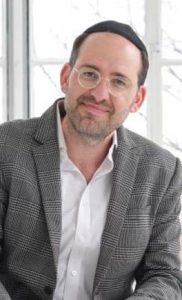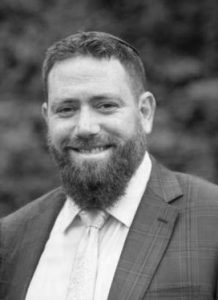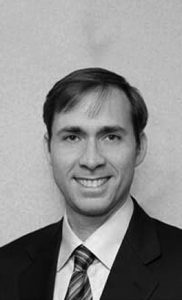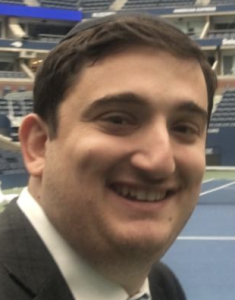By Larry Gordon
“If you’re overly worried about everyone drinking four cups of wine at the Seder or if you think it’s no big deal, that may have more to do with your relationship with drinking than what you do at the Seder,” said Menachem Poznanski, founder and director of The Living Room, the Our Place recovery program for young adults with substance abuse issues.
The issue of public consumption of alcohol comes to the fore almost every year in the frum community. Not just on Pesach, but at other celebrations where wine and liquor have become centerpieces. That means Purim, Simchas Torah, and of course, weddings. Over the past few years, many have eliminated bars or the dispensing of alcoholic beverages at catered affairs, and the broader community still grapples with this question.
The Our Place organization was founded more than 25 years ago in Brooklyn by a group of caring and loving individuals, led by Mr. Moshe Binik, a’h, and Rabbi Chaim Glancz. They were struck by the teens in the frum community who were dealing with challenges and not getting the critical support they needed. My conversation with four key members about this topic and why Our Place has been such a success in the community included licensed social workers Menachem Poznanski and Sony Perlman (director of Our Place Boys and founder of Our Village, which we will explore later on in this piece), Our Place co-president, Mr. Benjy Berger, and Rabbi Aryeh M. Young, director of development.




The conversation covered a wide range of topics, but fundamentally addressing how the Orthodox community has been dealing with substance abuse, addictions, how this approach has changed, and what is the state of the fashion in which our community deals with addiction and recovery in general.
It was a good learning experience for me. I was shocked that I knew so little about how professionals deal with these issues, and I even mentioned how disheartened I was to hear how widespread these issues have become and how deeply they have invaded our community, which many of us have believed to be sufficiently insulated from the societal ills of excessive drinking, drug abuse, and more.
Our Place was founded in 1998 in Brooklyn. More than anything else, it was a drop-in center on Avenue M where young people, who in many cases were rejected by either their families or yeshivas, had a place where they could be accepted unconditionally so they could feel a measure of self-worth and love, and begin their road toward healing. In our conversation, Sony Perlman pointed out that even with the move of many frum families out of Brooklyn in the past few years to places like Lakewood, Monsey, and the Five Towns, there has still been an uptick of Brooklyn-based youth seeking help at the Our Place Boys and Girls drop-in centers. That observation indicates that despite the shifting population in the frum community, and despite the high levels of awareness about these matters, the problem of substance abuse and addiction is still a critical issue to address, requiring the input of seasoned professionals. The success of Our Place has turned numerous lives around, heading them in a healthy direction.
Now, 27 years later, the Our Place continuum of care has grown and expanded, spanning 13 centers throughout the greater New York area (including the Five Towns), New Jersey, and Florida. While maintaining their extraordinary work with teens, the professionals of Our Place are not complacent about recognizing the higher levels of assistance that are required by those who are truly in need.
Toward that end, in 2004, Menachem Poznanski, founded what he refers to as TLR—The Living Room. Menachem explained that TLR provides help to Jewish young adults between 18–35 who are seeking support to succeed in their recovery from addiction after they have been initially treated in outpatient or inpatient rehab. “For many in recovery from substance abuse, the world can be a lonely place. Post-treatment life is not a simple thing. It’s not easy to integrate back into society,” Poznanski said. “We realized twenty-plus years ago that the relapse rate of 90–95% for addiction treatment was not acceptable for our community. We sought to find out what was stopping young people specifically from succeeding. What we found out was that in nearly all cases, their relapses were the result of a lack of sufficient support and access to resources, so we set out to address exactly that. We focused on giving young people who wanted to heal and get well the chance to do so successfully, to build a lifetime recovery that could be resilient through the challenges that life throws at them.” He added, “The Living Room is just that, a community for those on the mend. TLR offers 12-step meetings, counseling, weekend getaways, practical assistance, sober holiday programming, and most importantly, we provide the sense of a close-knit community, and the results speak for themselves. People are getting and staying well.”
The Our Place folks did not stop there. Sony Perlman, who was clinical director of Our Place for Boys for two decades, took on the matter of the lack of residential support for those on the road to recovery. Reaching out and reaching into our community on a deeper level, he founded the “Our Village” network of residential homes, where he is also the director.
Our Village provides separate men’s and women’s post-rehab transitional residences. Located in Monsey, New York, Our Village is a 47-bed program spread out over 6 homes, providing an optimal environment for healing. Sony explained that the Our Village team helps residents gain employment and participate in recovery-based activities to learn how to approach life’s ups and downs without falling back to old habits.
As you can see, what started 27 years ago as a drop-in center for teens in Brooklyn has become a 13-center enterprise that understands the nuances of substance abuse and other issues facing young Jewish adults, helping them reintegrate into Orthodox Jewish life in New York and beyond.
Aside from the details of the professional services offered by Our Place and their various divisions, our conversation floated in the direction of how a community like ours, with its emphasis on family life and yeshiva education, could have such a growing demand for these types of services.
I asked the group, which included Mr. Poznanski, Mr. Perlman, and Rabbi Young, whether they thought there was too much glorification of drinking (wine or alcohol) in Jewish life. They mentioned that to a certain degree we should shift the focus of our search for an answer to this question. They pointed out that the four cups of wine at the Seder can be a good thing if they are used to teach children about the consumption of alcohol in a responsible fashion. They pointed out how short-sighted it can be to have a black and white attitude on questions like this, and how their success in working with young people did not come from being against things as much as being for people.
I learned that the issue of addiction is not restricted to intoxicants, but also concerning a predisposition toward addictive behaviors on the part of the individual. And this includes addictions such as gambling, pornography, eating disorders, marijuana, psychotropic medications, and other types of addictive behaviors.
In addition to helping people understand themselves, there is a deep need to treat preexisting mental illnesses or emotional problems that stem from traumatic life experiences. All the professionals involved in our talk also agreed that much of this destructive and habitual behavior can stem from trauma experienced early in life. They explained that the key to helping people is not to see them through a black-and-white lens of one cause or another, but rather to look at them as a whole person who deserves to feel loved and deserves a chance at recovery.
The therapists pointed out that the issue of substance abuse and addiction is not just a matter for teenagers, but young men and women as well. They reported that in the past 5–10 years, they have seen a major uptick in young marrieds seeking help, and even newly married couples dealing with some of these issues.
We talked about the old conventional wisdom that if one child in a large family is acting up, it was advised that they place the child out of the home to remove the negative influence on the other children. The professionals agreed that this type of rigid approach is no longer the good or proper way to proceed, that unconditional love for that child will always win over most other options, and each family needs to find the best way to express that unconditional love in a manner that best assists their child or loved one.
This essay barely touches the surface of cases that the professionals of Our Place have had to deal with over these last many years. But whether or not we examine every type of situation they encounter in the course of their practice, one thing was made abundantly clear, that Our Place, The Living Room, and Our Village are there for us to turn to in our time of need. The work they do is certainly about saving lives, maintaining people’s dignity, keeping families whole, and bringing people back who have wandered off the path, in most cases because they have been victimized.
Over the past quarter century, while Our Place has helped thousands of individuals reclaim their lives, the needs and numbers are constantly evolving and we as a community are fortunate that Our Place is there to help.
If you know someone who is in need of help, please reach out to info@ourplaceny.org.
If you would like to sponsor and/or play in the Cross River Open, the Jewish community’s premier tennis event benefiting Our Place, please reach out to Rabbi Young at 516-512-4494. More information on the event can be found on pages 38-39 of this week’s edition of the paper.
Read more of Larry Gordon’s articles at 5TJT.com. Follow 5 Towns Jewish Times on Facebook, Instagram, and Twitter for updates and live videos. Comments, questions, and suggestions are welcome at 5TJT.com and on Facebook, Instagram, and Twitter.













